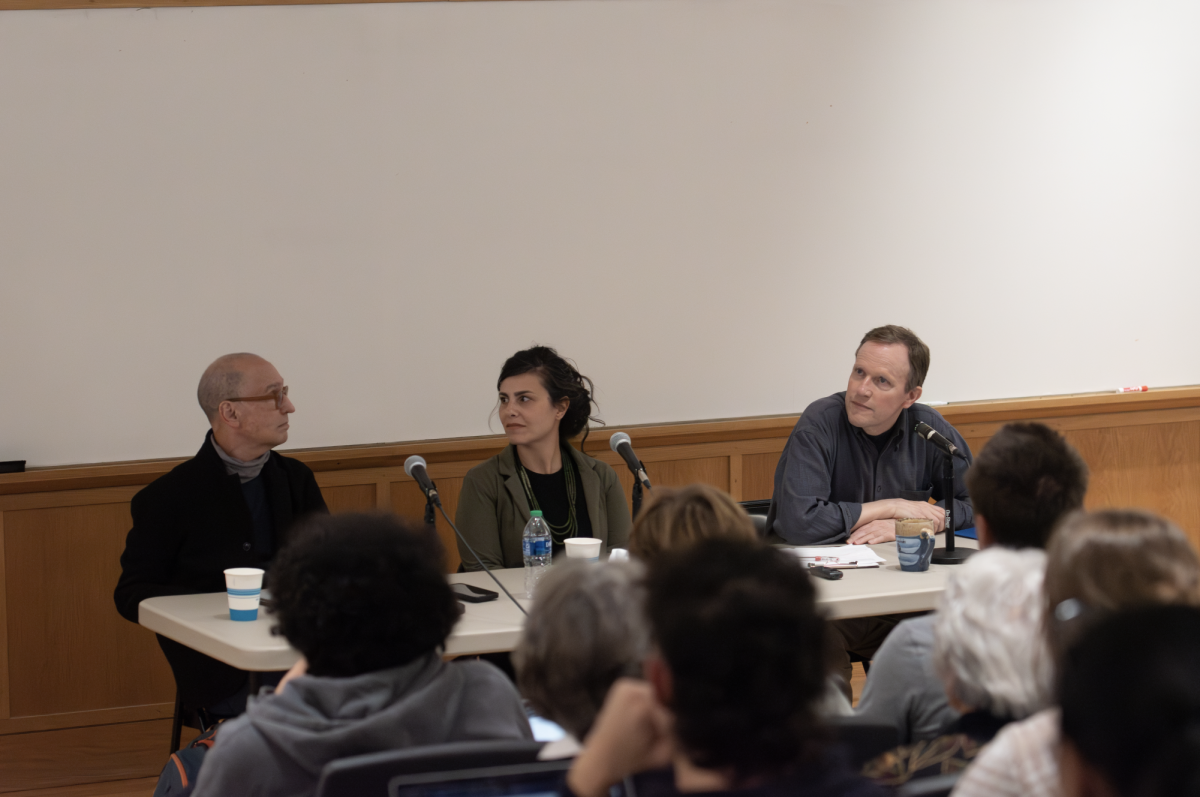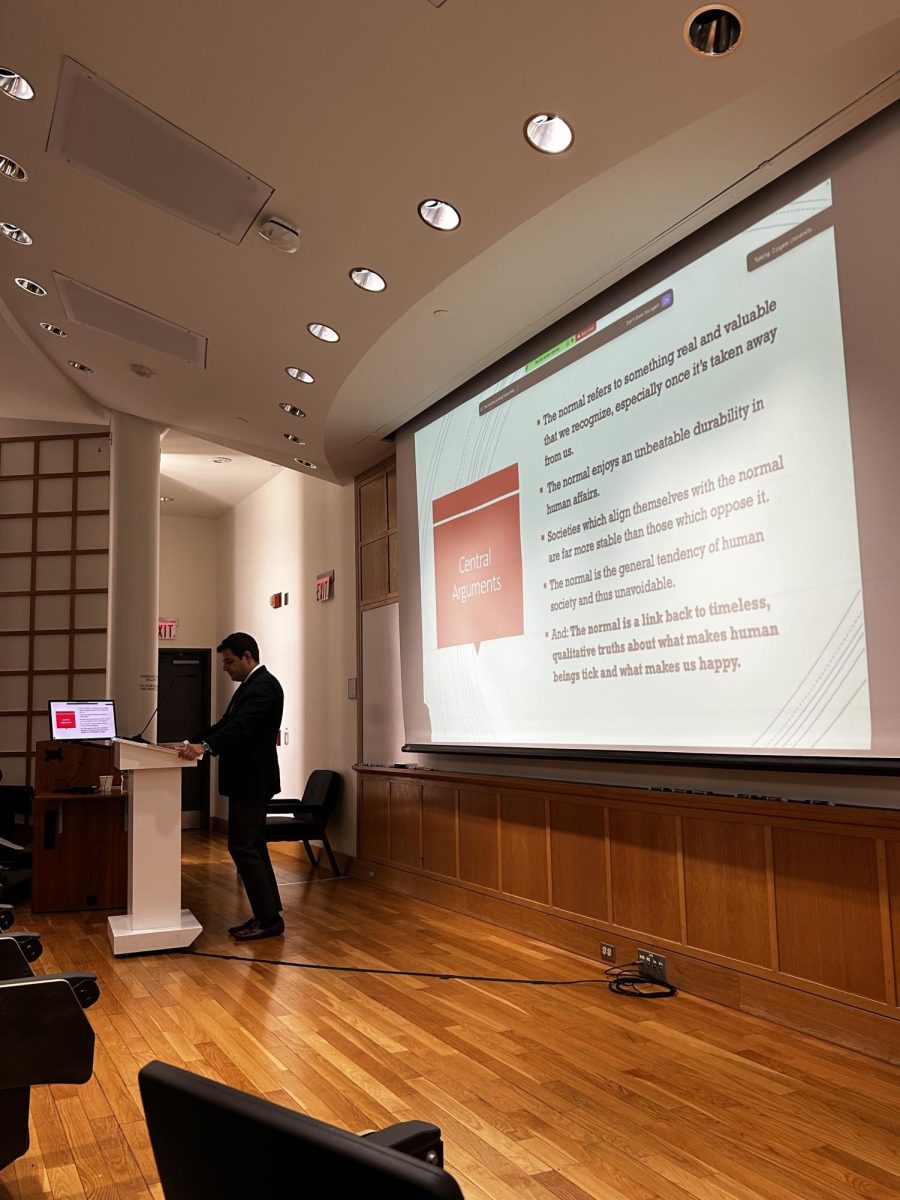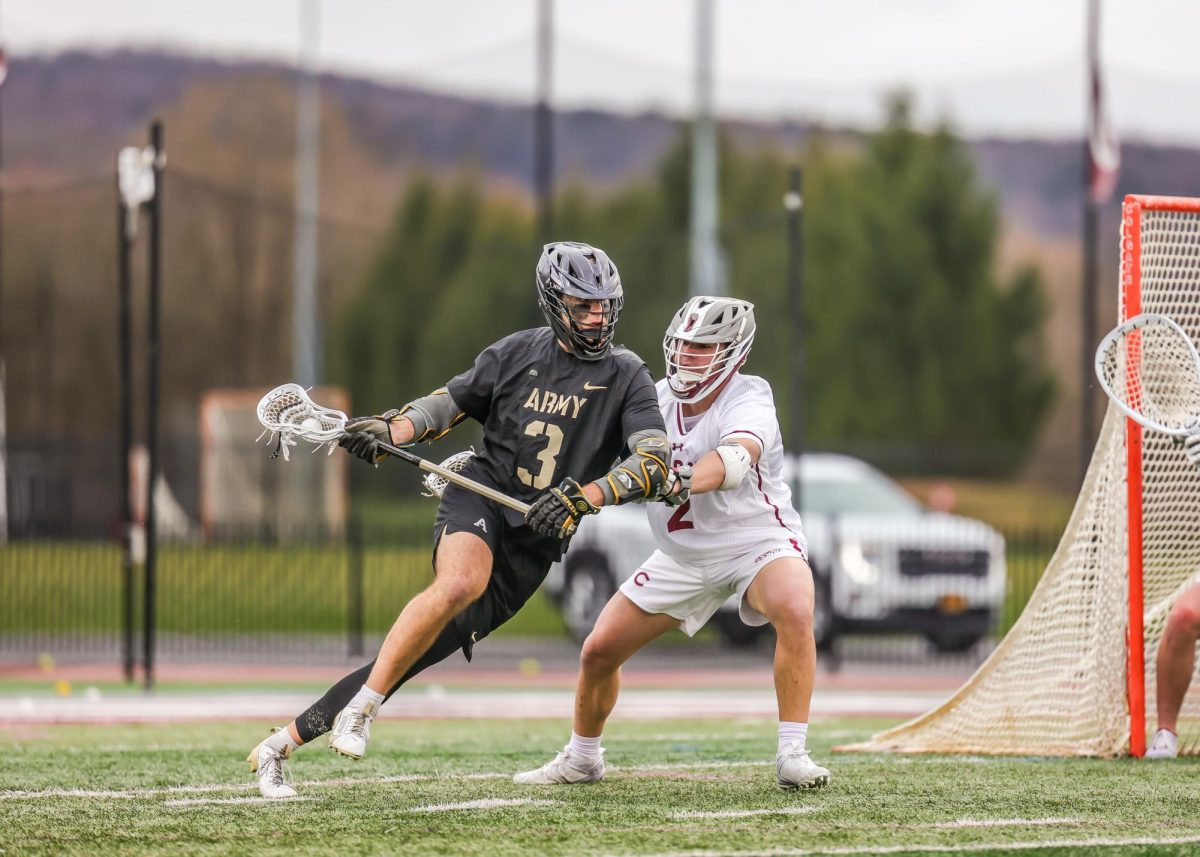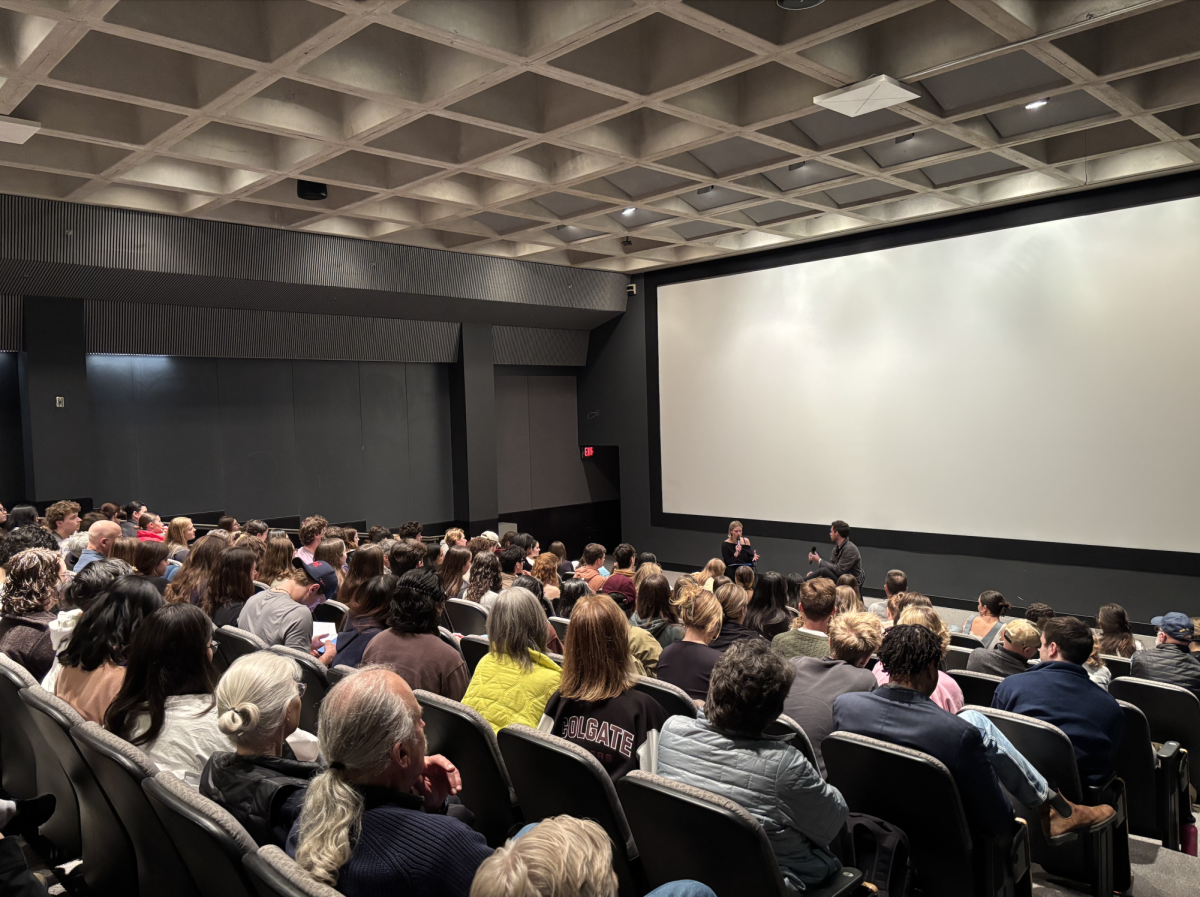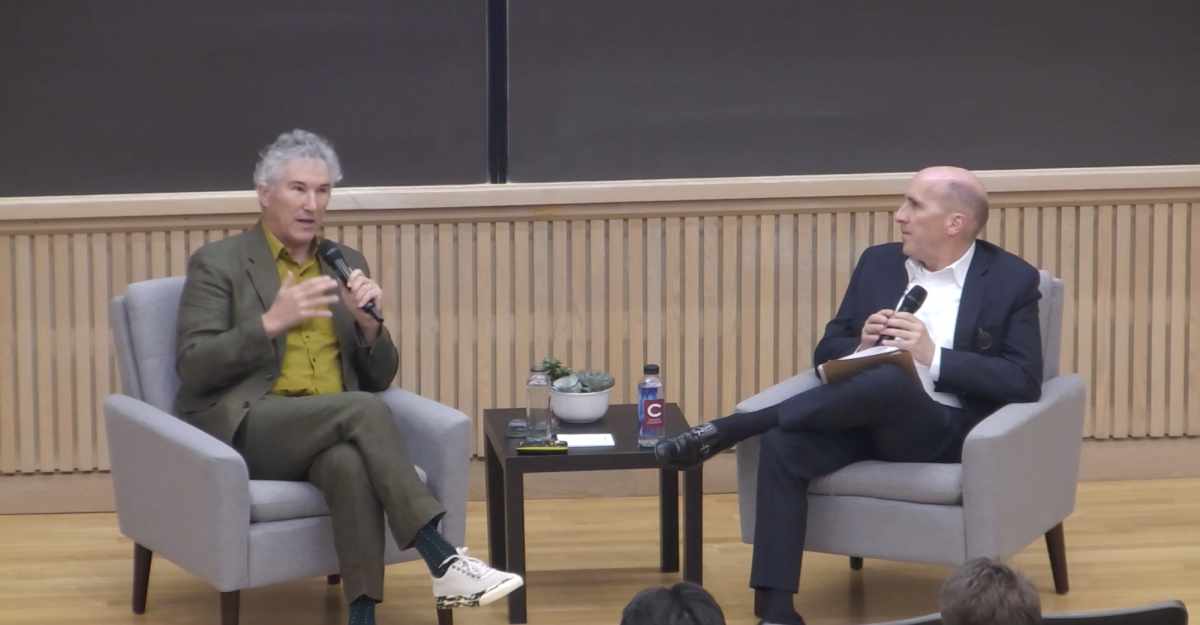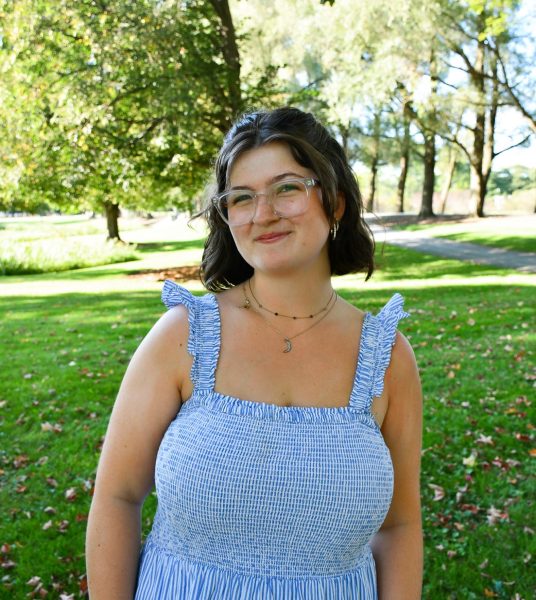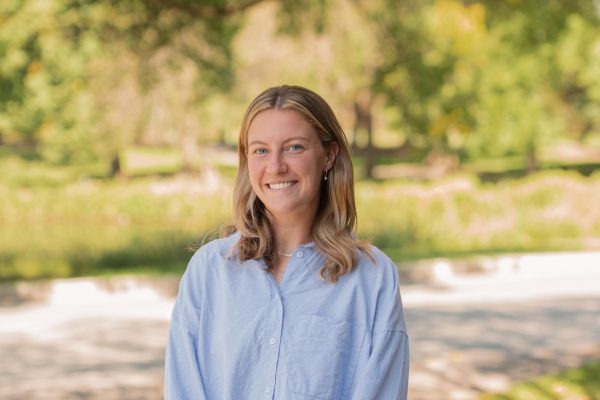Professors from Colgate University’s departments of Middle Eastern and Islamic studies (MIST), Jewish studies, peace and conflict studies and political science gathered on Tuesday, Oct. 24, to provide insight on current events in the Middle East. Held in Persson Auditorium, the panel attracted many students and faculty from the University. Director of MIST, Associate Professor of History Noor Khan, moderated the panel, which featured George R. and Myra T. Cooley Professor of Peace and Conflict Studies Daniel Bertrand Monk, Assistant Professor of Jewish Studies Daniella Doron and Associate Professor of Political Science Bruce Rutherford.
Sophomore Sarah Kinnard attended the panel and appreciated the academic approach.
“It’s important that Colgate had this panel because it brings attention to one of the issues dominating the news right now while allowing students to hear from professionals who are qualified to talk on the matter,” Kinnard said. “Ideally, panels like these allow people to get a more rounded view of a situation without having to worry as much about the credibility of their sources.”
During the panel, Khan read questions submitted by students beforehand and professors answered, if it matched their field of expertise. Many students asked clarifying questions about current headlines from Israel and Gaza, including ongoing hostage negotiations.
“The main difference of the issue is that, right now, a large percentage [of hostages] are civilians,” Doron said. “There’s a strong ethos of not leaving hostages behind […]. There is an understanding that a ground invasion will complicate the hostage situation and make it harder to retrieve hostages. Where that fits with the priority of getting hostages out is complicated because there is also an understanding, a sense, amongst certain Israelis that they should, that they have to go in and round out Hamas, but then there’s also the desire of returning and getting the hostages back home.”
Professor Monk, who has spent his academic career studying Israel and Palestine, provided historical context on the hostage situation.
“What would usually happen is there was a ratio of Palestinian militants in Israeli jails who would be exchanged for one soldier, and the ratio was quite significant; it would be many that would be exchanged for one Israeli,” Monk said. “Now, when you have, at present count, 220 Israeli civilians […] being held, the ratios change. And on Israeli television, what is openly being discussed is that this changes the calculus and that it may well be that all 220, alive or not, will have to be exchanged for one person.”
Professor Rutherford, whose research has focused on Egypt, discussed solutions to the conflict that could provide long-term peace in the Israel-Palestine region.
“There is an opportunity to cooperate with a number of regional actors — it’s worth keeping in mind that there are many Arab states that really fear Hamas,” Rutherford said. “They fear Hamas almost as much as Israel does. Egypt does, almost to the same degree for the same reason, Jordan does, perhaps even more and Saudi Arabia does and the UAE does — in other words, Israel has allies in fighting against Hamas. Israel has allies in the Arab world in the fight against radical Islam and it also has allies in the Arab world who want to see an outcome to the Palestinian situation that is viable. This is an opportunity for Israel to rethink how to be secure for the next 100 years.”
The panel gave the professors an opportunity to debate on some matters, including Israel’s long-term security, a topic on which Doron differed from Rutherford.
“Do I realistically think that this government will see that opportunity? Not really, not in the short-term,” Doron said. “Mainly because this government, by which I mean Netanyahu’s government, has not been interested in a two-state solution and has tried to undermine the creation of a two-state solution. So in the context of thinking about this particular government and the policy it has pursued, the idea of a smaller Gaza — again, I’m not condoning it — kind of makes sense that it would become an attractive option.”
On the topic of the current Israeli government, Monk offered insights on Israeli politics before the Oct. 7 attack.
“[The day before the attack], people in Israel were openly talking about war but not with Hamas,” Monk said. “They were talking about a war with one another. The prospect of an Israeli civil war, between what I and others have described as status-ists versus revisionists, was something that has been at the forefront of Israeli political consciousness as a consequence of efforts on the part of Netanyahu and his coalition partners to essentially eviscerate the judiciary’s capacity to overrule the decisions of the legislative and executive branches of government.”
The panel on the Middle East comes as academic departments, student groups and the University continue to grapple with the crisis in the region through reflection and productive conversation.


